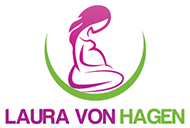A recent study brings into question the safety of paracetamol (Tylenol) and ibuprofen (Advil) during pregnancy. Researchers at the University of Edinburgh exposed fetal ovaries and testes to paracetamol (Tylenol) and ibuprofen (Advil) for 7 days inside a lab.
They found that ovaries exposed to paracetamol for one week had 40% fewer germ cells. Germ cells in the ovaries and testes are responsible for developing into oocytes (eggs) and sperm. After ibuprofen exposure, the number of germ cells was almost half the original amount. What about the fetal testes? Testes exposed to painkillers had approximately 25% fewer germ cells compared to the controls. The researchers tried different approaches, and found similar effects for both human and animal samples.1
What does this mean?
If you take Tylenol during your pregnancy, you could be significantly reducing your future daughter’s fertility. In fact, all of a woman’s eggs are formed while she is still growing in her mother’s uterus. Now that’s pretty cool, isn’t it! Therefore, a reduced number at birth could result in diminished ovarian reserves, difficulty conceiving and early menopause later in life. Since sperm have the ability to regenerate every few months, the research is less alarming for males.
Should I take Tylenol during my pregnancy?
At this time, Tylenol still remains the safest non-prescription medication for pain relief and fever reduction during pregnancy. If you need to take Tylenol during your pregnancy, current guidelines suggest using the lowest possible dose for the shortest period of time.2
What’s my alternative for common pregnancy ailments?
A Cochrane review, one of the highest levels of evidence, found that ginger significantly reduces nausea and vomiting of pregnancy (NVP). In one study, 33% of women enrolled were still vomiting on day 6 of the trial compared to 80% of those taking a placebo. Ginger, at a standardized dose of 250 mg four times per day, has been found to be safe to consume during the first trimester of pregnancy.3 Along with ginger, weekly acupuncture has been proven to be extremely effective in treating NVP.4
For headaches and migraines, one of my favourite supplements is magnesium. In fact, the use of magnesium is approved by the European Federation of Neurological Societies for prophylactic prevention of migraines during pregnancy.5 Not all magnesiums are created equal; some forms are much better absorbed and less likely to cause diarrhea. Always speak to your Naturopathic Doctor before taking any new supplements, especially during pregnancy. Along with magnesium, it may be helpful to avoid common headache triggers during pregnancy including hypoglycaemia, chocolate, aged cheese, monosodium glutamate and nitrates. Eating more frequent, balanced meals high in fibre and protein will help balance blood sugar and potentially prevent headache attacks.
Personalized Pregnancy Support
Pregnancy is a precious time in a woman’s life, but can also come with many new, unwanted symptoms. If you have any more questions, I would be happy to speak with you directly in person or over the phone . Complimentary 15 minute consultations can be booked online HERE.
References
-
https://ehp.niehs.nih.gov/EHP2307/
-
https://www.ncbi.nlm.nih.gov/pubmed/28986045
-
https://www.cfp.ca/content/cfp/62/2/145.full.pdf
-
https://pitiesalpetriere.aphp.fr/wp-content/blogs.dir/134/files/2014/05/Nausee-vomissement-Acu-Smith-ECR-Birth-2002.pdf
-
https://www.researchgate.net/profile/Gianni_Allais/publication/44594109_Non-pharmacological_management_of_migraine_during_pregnancy/links/004635265c72707890000000/Non-pharmacological-management-of-migraine-during-pregnancy.pdf

